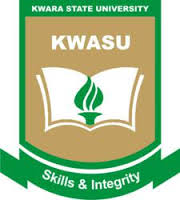Town Meets Gown in Kwara for African Cinema

Stakeholders in the moving picture sector of the Nigerian entertainment sector will converged at the Kwara State University, Ilorin to discuss African films and cinema.
The event, which runs from November 26 to 29, has African Cinema And The Supernatural as theme.
The four-day event, which holds at Kwara Hotel: Hall B and other venues will be declared open by the Kwara State Governor, Abdulfatah Ahmed while Ken Harrow will give keynote address on Witchcraft, Movies, and the City: the Old and the New.The paper posits a relationship between three things: the notion of witchcraft, African cinema, and the African city. The central claim of the paper is that Africa has a cinema before the coming of video film, but as the city changed with its urban notions of witchcraft, so too did cinema.
According to Harrow, "a new cinema came about along with the new forms of beliefs concerning witchcraft," while emphasizing that "in African cinema we have the older form of cinema, call it FESPACO cinema or celluloid film, and the newer form, call it Nollywood or video film. We have the old 'witchcraft,' a little like the maraboutism or sorcerer figures mocked in Sembčne's early cinema, and the new witchcraft as we see in Living in Bondage beginning in 1992 and continuing ferociously, down to today's Afolayan's Figurine (2009). "Also, we have the old colonial city, or at least the older city of the 1960s when African cinema was born, and the newer African city of today, described in the work of Haynes, Okome, and Garritano. All three domains, cinema, witchcraft, and city are linked. Each changed in conjunction with the other." Harrow's paper is expected to "compare the two different generations of cinema, focusing more on the earlier period prior to 1990. Thus we have the older pre-Nollywood films, Nollywood after 1990, and now neo-Nollywood cinema starting about four years ago."
And to get at cinema and witchcraft, there is going to be a focus on the representation of witchcraft in a series of films. To answer the question of the relationship between magic and cinema, the presenter will also turn to the city where both took up their residence, where notions of witchcraft and the movies were defined and thus were born. Day One will also have the Dazzling Mirror screened later in the evening among other highlights.
Day 2 will see the Vice Chancellor of Kwara State University, Professor AbdulRasheed Na'Allah speak on The Film Village and the Inauguration of Institute for Nollywood Studies. The book, African Cinema: Narrative, Perspectives and Poetics written by Frank N. Ukadike will be presented to the public. Participants will also be grouped into panels to discuss topics, including, Nollywood, Religion and the Supernatural; The Supernatural in Nollywood Films: Multiple Logics; The gods are dead;Occult, Charms and the Devil: Screening Supernatural Dystopia in Africa; Nollywood Audiences and the representation of the Supernatural and Superstitious; The Semiotics of Evil in Mike Bamiloye's The Ultimate Power and others. Prof Onookome Okome will chair Panel I. Panel 2 will look into Nollywood: Style, Form, Content; Variations on Nollywood movies' ending slogan "To God be the glory; Beauty, Beast and Fortune: Reading Selected Nollywood Films; The Time of Responsibility: The reception of Ebuwa among trafficked Nigerian women in Italy and the African writing of the self; Nollywood Witches and Sorcerers are no Vampire Heroes; Interface of the State and the Supernatural World; Islamic Education Versus Yoruba Traditional and Ethical Yoruba Beliefs Nigerian Films: Ado Ire and others. Kole Omotosho will chair the session.
Other panels will hold on the remaining days and at specific venues. Aside from talks on filmmaking, scriptwriting, production and editing, the four-day event, which will serve as a platform for the academics, filmmakers, producers and the audience to cross fertilise ideas that will not up the ante in script writing, editing and filmmaking, but would position the African cinemas, especially the Nigerian movie industry on the world market, making them to produce films that tell the world whom we are and win international laurels.
Cloud Tag: What's trending
Click on a word/phrase to read more about it.
Veterinary Teaching Hospital Mahmud Ajeigbe Opaleke Bukola Iyabo Bamikole Omishore Alore Zulkifli Ibraheem Salihu Ajibola Ajia Lafiagi Twitter Cassava Growers\' Association Sango-UITH Road Kwara Liberation Group Omu-aran Trade Lenda SME Fair Muslim Media Watch Group Of Nigeria Jeunkunu-Malete-Bani GGDSS Pakata Mazars Consulting Kehinde Boyede Ballah Zulu Gambari Agboola Abdulraheem Royal FM Shao Olayinka Are Babatunde Ishola Babaita Third Estate Abdulazeez Arowona Ile Arugbo Bamidele Adegoke Oladimeji Ekiti 2017 Budget Mufutau Gbadamosi Esuwoye Ayotunde Emmanuel Alao Saheed Popoola Omoniyi Bond Yoruba International Vocational Centre Muritala Awodun Funmi Salau Arca Santa Valsolar Olupako Coalition Of Kwara North Groups Gbugbu JAMB Share Ramadhan Pakata Ilorin Anchor Men And Women Saka Abimbola Isau SARS Isiaka Rafiu Mope Oke-Oyi Taibat Ayinke Ahmed Jide Oyinloye Abraham Ojo Adesoye College LEAH Charity Foundation Moshood Mustapha Funmilayo Braithwaite Hassan Saliu Baba Issa Shehu Alimi Foundation For Peace And Development Senior Ibrahim Suleiman Jumoke Gafar Abdulrahman Onikijipa Suleiman Idris Lola Olabayo Sheikh Hamzat Yusuf Ariyibi Saad Omo\'ya Kayode Yusuf Ibraheem Adeola Katibi Sobi Oluranti Idowu Bola Ahmed Tinubu


